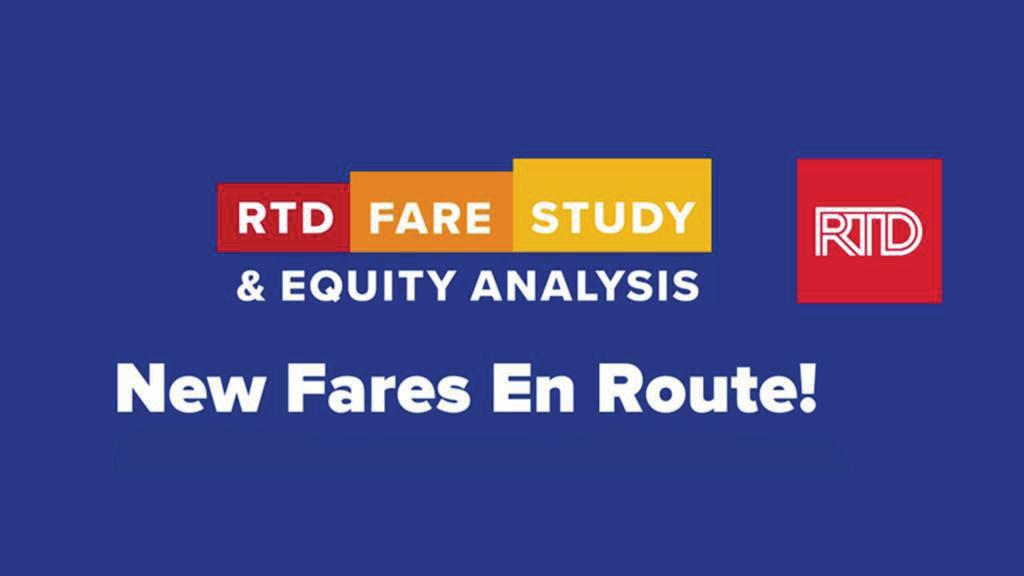
1 minute read
RTD recommends lower fees in new fare structure
BY NINA JOSS NJOSS@COLORADOCOMMUNITYMEDIA.COM
In 2024, community members who use public transit in the metro area may get to ride with a simpler, more equitable and a ordable fare system.
After a year of conducting a fare study and equity analysis, the Regional Transportation District, known as RTD, is recommending a new fare structure and changes to discount and pass programs.
At Littleton Downtown Station on May 9, RTD representatives educated morning commuters on the proposed changes.
“When we started out … we had three goals, which (were) equity, a ordability and simplicity,” said Bill Sirois, senior manager of transit-oriented communities in the planning department at RTD. “So that’s kind of been the theme throughout.”

New fare structure
Sirois said the district has received a lot of feedback from people who said riding RTD is expensive and difcult to understand.
To improve and simplify the fare structure, RTD is proposing to combine “regional” and “local” fares into one rate called “standard.” e RTD area has three roughly concentric circle “zones,” starting with Zone A in downtown Denver, reaching out to Zone C at the farther stations within the district, such as Je erson CO Government-Golden Station and both Littleton stations. A regional fare costs $5.25 for a 3-hour pass and $10.50 for a day pass.

As the structure exists now, a person pays a regional fare if they travel through more than two fare zones.
Current local fares, which cover transportation in one or two zones, are $3.00 for a 3-hour pass and $6.00 for a day pass.
Under the proposed fare structure, zones would be eliminated. A passenger traveling any distance would pay $2.75 for a 3-hour pass and $5.50 for a day pass, al- most cutting fares in half for regional travelers and lowering the price a by less than a dollar for local travelers. e only exception to this standard rate would be travel to or from Denver International Airport, which would decrease from $10.50 to $10.00.
“When we did surveys, we heard from the business traveler and the occasional traveler, and it’s like ‘Hey,
10 bucks -- that’s fair,’” Sirois said.

Airport employees, on the other hand, said they wanted to see cheaper fares for traveling to and from the airport since they do it so frequently.
“So… we lowered the monthly fare to the airport from $200 to $88,” Sirois said.

Under the proposed fare structure, all monthly passes would be $88, going down from the current local pass at $114 and the current regional/airport pass at $200. e proposed plan also includes simpli ed and decreased fares for those who use RTD’s discount fare program, including adults ages 65 and over, individuals with disabilities, Medicare recipients and income-eligible customers.
Bruha








